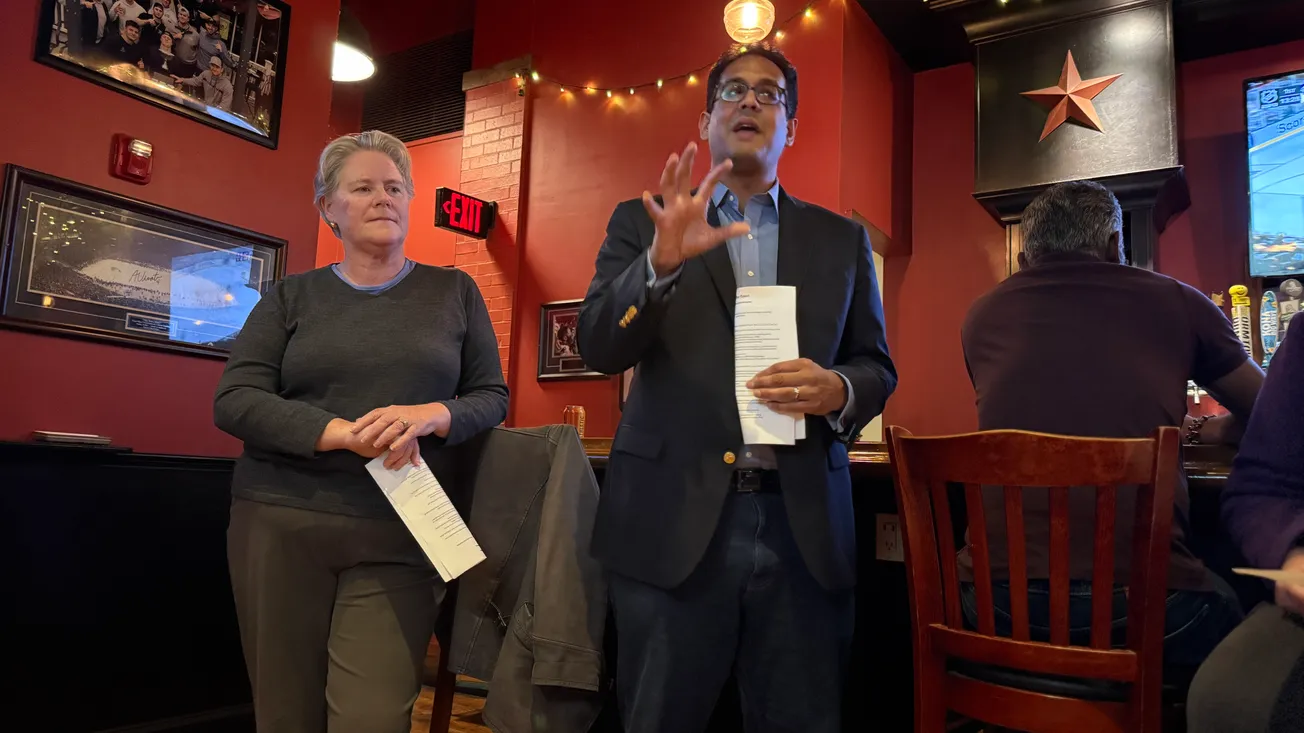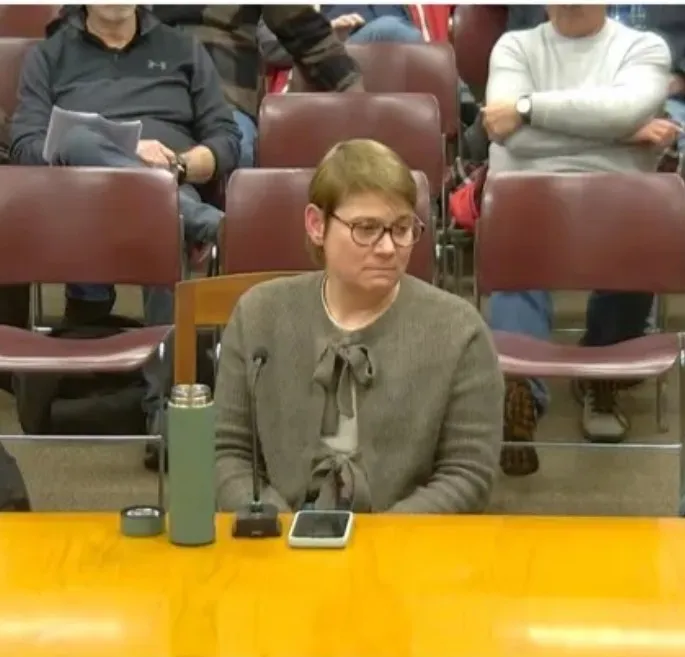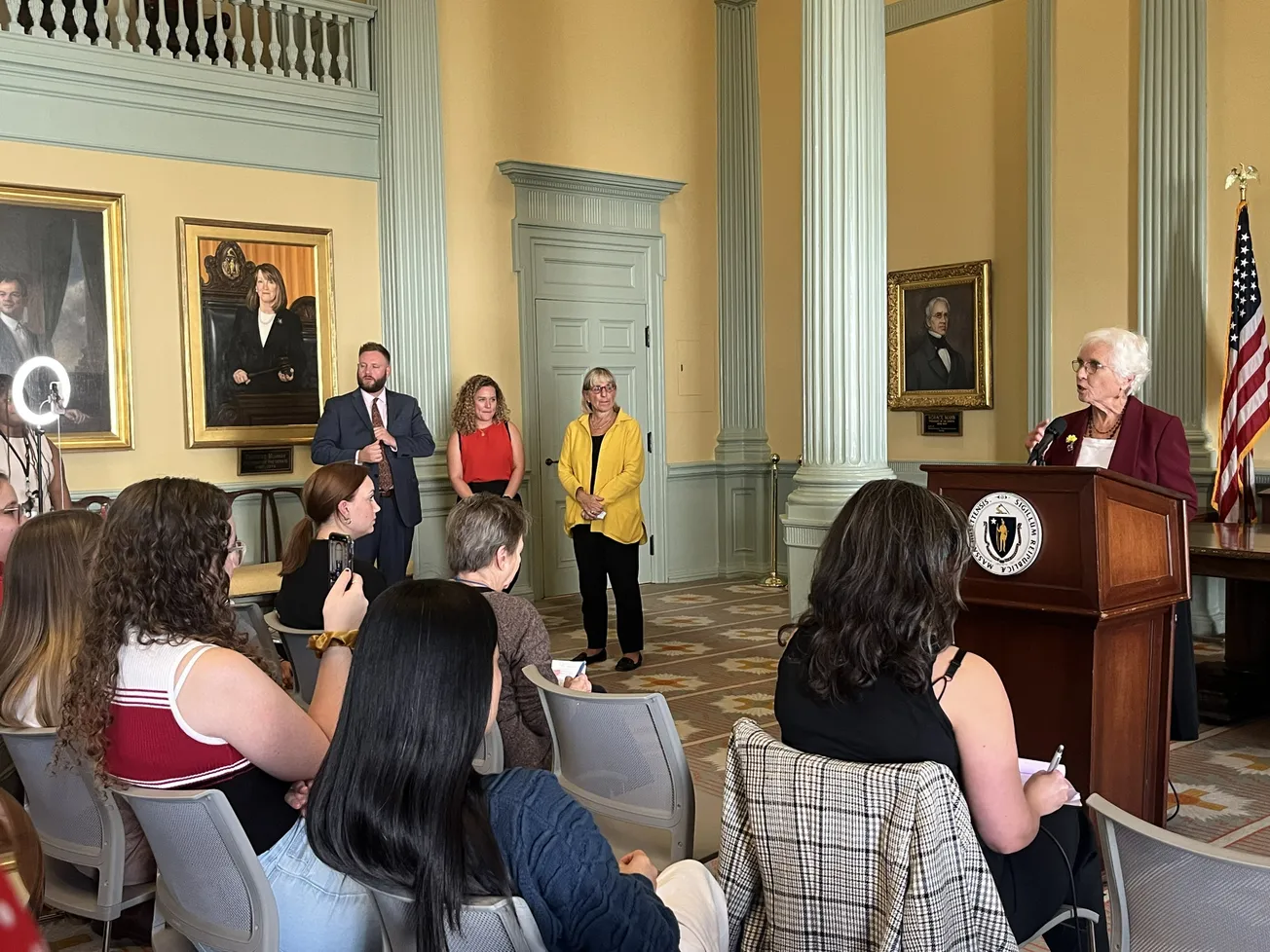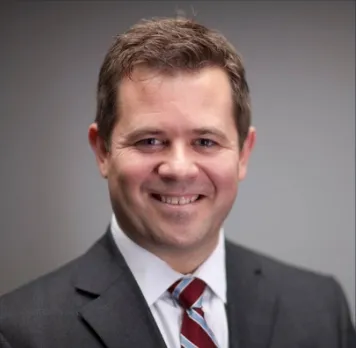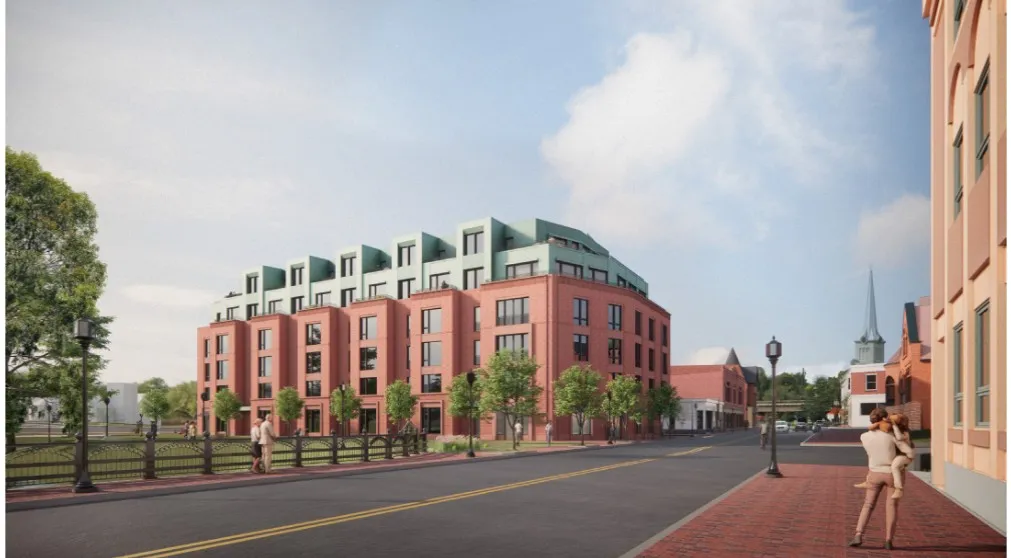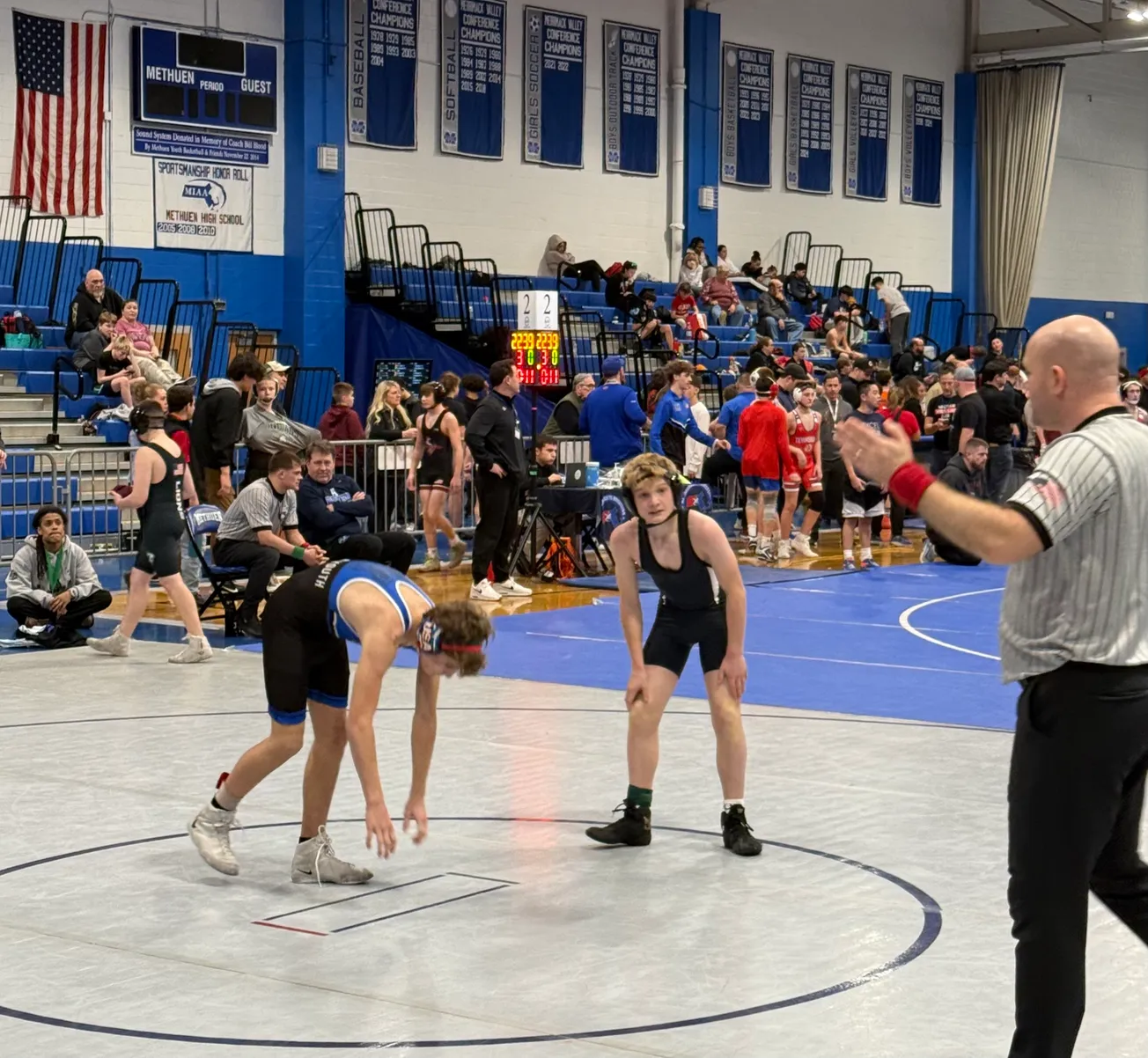Table of Contents
Select Board members laid out a sweeping fiscal analysis at a Chamber of Commerce event Tuesday night, detailing months of work by a 25-member committee examining everything from fee structures to regional partnerships as the town prepares for a potential operating override.
Paras Bhayani and Michelle Prior presented updates from the State of the Town Committee to about 50 residents at the First House Pub at 528 Main St., emphasizing that the process goes far beyond simply identifying budget gaps and proposing tax increases.
“We did a really deliberate attempt to look at not just needs, but revenue sources that aren’t part of the levy, so fees and fines and permits and where could we leverage things,” Prior said. “We’re looking at the broad overall financial picture. Not just what do we need to balance a budget year to year, but where do we want to look at long term liabilities and plan for that?”
Revisiting fees and fairness
Winchester’s $163 million fiscal year 2026 budget relies heavily on property taxes, which generate about $128 million under Proposition 2½ limits.
State aid adds roughly $13 million and local receipts about $11 million, according to town budget records. The School Department’s $70.4 million appropriation makes up nearly half of spending, with the rest split among public safety, public works and town operations.
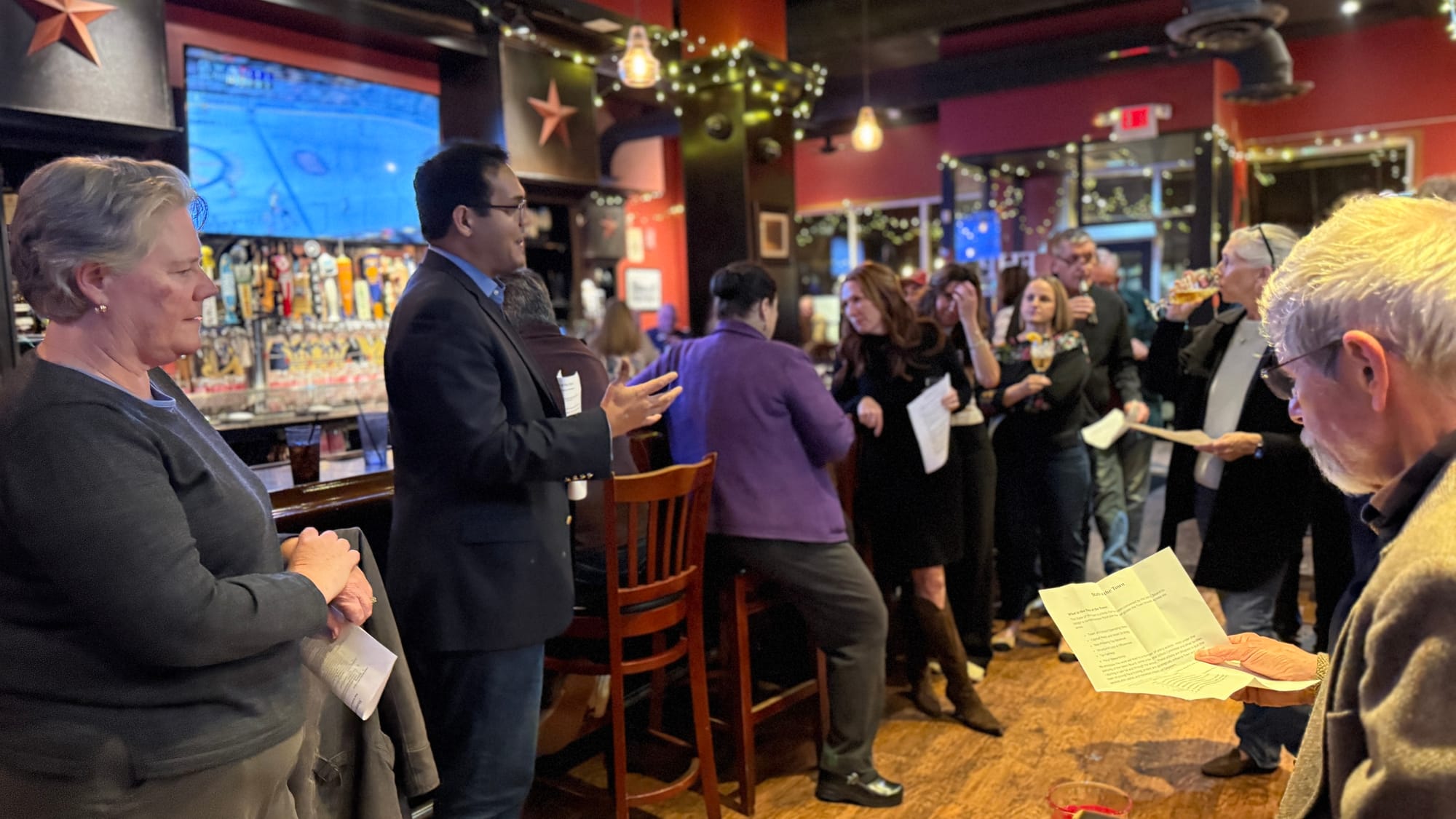
Rising health and utility costs are driving expenses faster than revenues, the Finance Committee reports. Capital needs exceed $85 million over five years, and while the town holds a AAA bond rating and reserves near $23 million, officials warn those balances could decline without new revenue or an operating override.
The committee has organized its work into multiple streams, including revenue generation, operational efficiencies, capital needs, schools and long term liabilities. Prior said the town stopped collecting some fees during the COVID-19 pandemic and never resumed market-rate pricing for services ranging from transfer station disposal to building permits.
“We’re looking across six or eight peer communities and saying we’re 25 bucks, and somebody else is at $15, should we look at going up to $30,” Prior said. “We’re really looking at where we can market rate and adjust to what we’re doing, before we look at changing the levy and putting operating over it.”
Bhayani stressed the depth of analysis behind what appears as brief line items on committee documents. He said a three-word reference to the transfer station represents 27 pages of supporting documentation and six meetings of detailed review.
“Each of these areas we’ve had, we have 25 people on the State of the Town,” Bhayani said. “We have people going very deep in each of these areas. So when we say it’s a comprehensive process, if we were to put together the combined documents of each of the areas of inquiry that we’re looking at, it would — by the time we’re done — will be hundreds of pages.”
The committee has already achieved some concrete results. The Select Board unanimously voted to raise the town’s operating reserve target from 6% to 10% to 14%. The School Committee has begun addressing underutilized facilities, bringing an article to Fall Town Meeting to transfer the Mystic School back to the town.
Tax shift tool
One significant tool under consideration is a residential tax exemption that would shift more of any override burden to higher-valued properties while protecting modest homes. Under state law, select boards can implement such exemptions without legislative approval, though they would need to set specific thresholds and exemption levels.
“Our view is, we sort of protect that group by implementing a residential exemption,” Bhayani said. “And what it does is it would say a $800,000 home might face a $600 increase. Instead, they might face a $150 increase, just to give you an example.”
The exemption would only affect residential properties, leaving commercial tax rates unchanged. Bhayani noted Winchester is 96% residential, making commercial tax shifts impractical despite some resident interest in expanding the commercial base.
“We are a bedroom community,” Bhayani said, adding that generating $1 million in new tax revenue would require $90 million in new real estate development.
The committee is examining regionalization opportunities across multiple service areas. Winchester already participates in collaboratives for special education and public health with neighboring communities, including Melrose, Wakefield and Stoneham. Officials are exploring whether to expand cooperation to planning, procurement and waste disposal.
“If we are really good at cardboard recycling, some other towns really good at glass recycling, should we actually be sending some things that way?” Prior said.
Prior highlighted the town’s progress on pension obligations, noting Winchester expects to fully fund its pension liability by 2027 rather than the original 2030 target or the 2040 deadline the state provides most municipalities. The town now needs to address its other post-employment benefit liability for retiree health insurance.
A holistic approach
“Every 35-year-old teacher who retires at 55, we’ll be paying for that,” Prior said, referring to health insurance costs the town covers for retired employees.
Bhayani acknowledged Winchester has made strong fiscal decisions in recent years, pointing to the town’s AAA bond rating. Only 12 Massachusetts municipalities, excluding Boston and Cambridge, hold that rating, and only one other town with Winchester’s residential makeup has achieved it.
“There are a lot of things we should be proud of,” Bhayani said, noting six of seven school buildings have been renovated and flood mitigation work is complete.
Caren Connelly praised the current approach as uniquely comprehensive.
“This is the first time though, I’ve seen such a holistic approach that has been thoughtful and has pulled together all of the different people involved, all of the boards, volunteers and nonprofits,” Connelly said. “When there is a number, if there is an override number, then it truly wasn’t a bunch of folks sitting around in a room throwing darts at a board.”
Will Dowd is a Massachusetts journalist who covers municipal government and community life for Winchester News. He previously co-founded the Marblehead Current and now runs The Marblehead Independent, a reader-funded digital newsroom.

